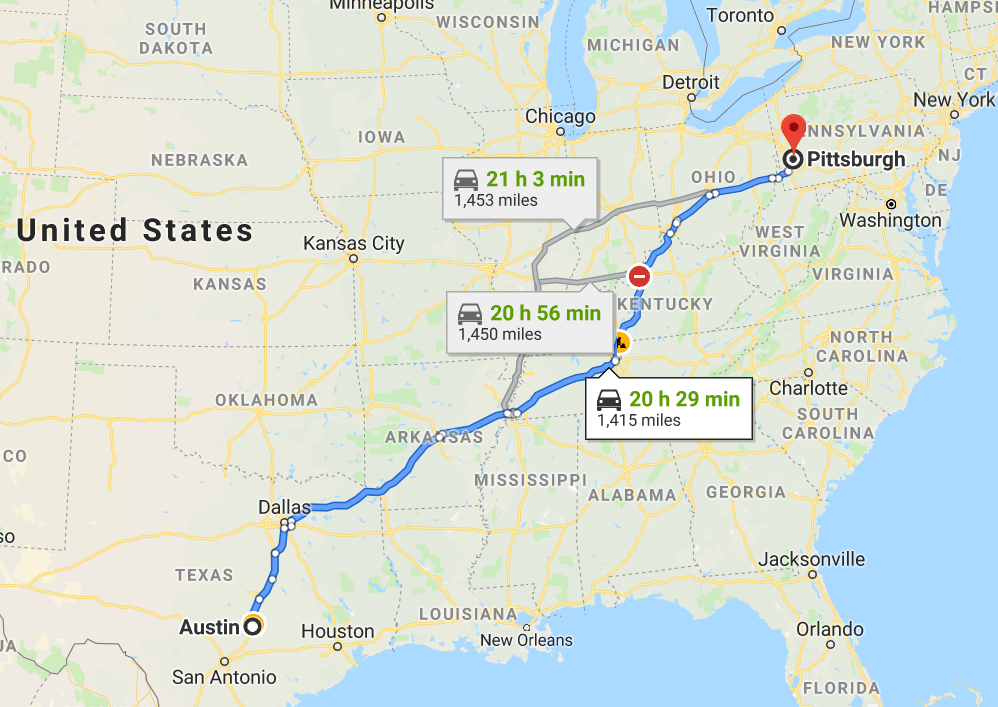Last summer I discovered that Via Air was the worst airline in America with an F-rating from the Better Business Bureau and 71% of their TripAdvisor reviews poor or terrible, compared to 27% for Allegiant, 26% for United and 6% for Southwest.
In the spring I warned against booking the airline, concerned it wouldn’t last. Now Via Air has pretty much shut down. They ghosted airports, who don’t know why the airline never turned up when their schedules had them starting to fly. They’ve been accused of not paying employees, who say they can’t get through to the airline either. And after initially claiming a scaled back operation was due to a pilot shortage (apparently pilots unwilling to work for the $0 in wages they were paying) they started ghosting reporters, too.
So it’s not surprising that they didn’t notify passengers who purchased tickets that their flights were cancelled. The airline may not have even had contact information for passengers who booked through online travel agency websites.

Credit: Via Air
The appalling – but not shocking – thing is that online travel agency sites apparently didn’t notify their customers, either that Via Air wasn’t operating. My local news in Austin covers a man who showed up at the airport, having booked tickets through Travelocity (which is owned by Expedia), expecting to fly for Father’s Day only to discover that Via Air hasn’t operated at the airport in weeks.
He’s been refunded the $275 he paid for this ticket, but since walkup fares to Pittsburgh are running “$800 to $900” roundtrip he rented a car and is driving.

There’s something fundamentally wrong, I think, with the large online travel agency websites. In my own experience, and from emails I get from readers, my sense is:
- They provide poor customer service, often long hold times for agents without the capability to help with much of anything that goes wrong with a booking.
- They don’t do a very good job of helping customers identify the best trip for their needs. There’s very little guidance on the best connection, what flight experience is going to match a customer’s preferences, or what hotel they’ll enjoy.
- Instead customers are either left to their own devices to pick whatever is out there (so pretty much zero value add) or worse options – especially for hotels – that are presented based on which hotels will pay a premium for consumer eyeballs rather than what hotel will best meet a customer’s needs or what will give them the best price.

Expedia Dancers Ghost You When the Airline You Booked Shuts Down. Flickr: Juggernautco
Online travel agency websites complain that Google is delivering travel results directly to customers instead of sending people to their websites where they can collect a toll (commission) on the transaction. And they want the government to step in and force Google to deliver customers to them.
I say that online travel agency websites should be better, should add value to customers, so that customers will want and prefer the service that they’re providing.
The bare minimum, it seems to me, is that an online travel agency should be aware when an airline they’re selling stops operating — so that they proactively reach out to customers to help them in getting re-accommodated. No one should ever show up at the airport, weeks after an airline has been there, to discover they have no flights when they made their booking through an agency.
Travelocity should do more than facilitate a refund because Travelocity failed in its fundamental duty to the customer. As they say “Travelocity had one job.”


Imagine if online travel agencies actually did add some value. What a world that would be. Except on the rare occasions in which an OTA can sell a ticket that’s not available directly from an airline, why do they even exist?
I agree that OTAs should provide value-add to justify the commission they earn, but they would have to charge higher fees to do so… and there’s plenty of evidence that air travel is a race-to-the-bottom with the majority of consumers unwilling to pay a premium for service or quality. (The proliferation of basic economy and budget airlines are the prime examples.)
The place this is even worse is on the corporate OTA side. My employer requires we use Egencia, the business-oriented product from Expedia, for all air and hotel bookings. The HR department that owns this claims that this saves the company millions of dollars — but every time they’re asked for data on how, they’re silent.
It’s possible that they are saving money — maybe this helps with infrequent travelers who don’t know how to comparison shop, and I have noticed a 10% negotiated discount on international travel booked less than 14 days out. For the most part, though, they give equivalent or higher prices to booking direct on airlines, and frequently don’t include conference hotels at all (and certainly not conference rates). I assume the bulk of the savings is that some responsible exec is getting top-tier status and personal discounts, like how corporate travel influencers get United GS without having to meet spend requirements.
And the service? Abysmal. Egencia has constant challenges recognizing personal elite status, so quality of service and prices are higher. They will allegedly cover extreme rebookings for travel disruption (including chartering flights), but I’ve never seen it happen. Employees who have to on-site aren’t charged PTO if they are stranded and have booked through Egencia. That’s nice, but a company policy, not the OTAs.
@ Jered – “I assume the bulk of the savings is that some responsible exec is getting top-tier status and personal discounts…” BINGO!
Actually, Gary, you were too kind to Expedia and other OTAs. If something goes wrong or a passenger wants to make a change, it’s far easier handle if you have bought the ticket directly from the airline and can thus deal with the airline directly.
I recall, for instance, an experience with a business class Finnair ticket I foolishly bought through Expedia a number of years ago. I wanted to make a change. When I asked just to be sure, Finnair repeatedly informed me that making the change was no problem as far as it was concerned. But Expedia, when I could finally reach them after very long phone waits of an hour or more, kept making up different excuses for why it wasn’t possible. I finally prevailed, but only after perhaps the fifth Expedia supervisor I reached was willing to make the slightly extra effort to make the change. And from what I read at various travel forums, other OTAs are as bad or worse than Expedia.
Bottom line: In almost all instances, passengers are far better off buying directly from the airline and bypassing the OTAs. And for simply searching, they’re better off with search engines such as Google, Kayak or Momondo, rather than the OTAs.
They originally aggregated information not otherwise available. It has been a long time since that was true. I learned the hard way years ago that if anything goes wrong, you are far worse off than if you had bought the ticket from the airline itself. I have not bought a ticket from an OTA since.
Bought ticket on LOT through Expedia. Needed to change date. Expedia asked for $300 more. Called LOT directly. They changed it for $100.
No more Expedia.
All of these things cost money, and the online sites are selling cheapness. Unless there’s regulation for this (which I sense it’s what you’re asking for), none of what you say will ever take place. The online travel agency that increases its prices by $1 (or tacks on a $1 fee) for the cost of taking care of passengers will be driven out of business by lack of demand — especially by exactly the type of people who book Via Air. And politically in the US the consumer is the last person they care of in Washington; maybe the European version of Expedia has different policies.
Especially for accommodations, OTAs are just another way for travel providers to skirt the rules. Take for example hotels.uk.com (not to be confused with the UK site of hotels.com). When a B&B owner on the site decided I was less worthy of the room I had booked than a local family arriving a day later, she kicked me to a crappy room and blamed it on a “computer error.” Just another reason to avoid the hell out of OTAs and riffraff you often find there.
So @gary, you are calling for regulation!? Wow… I agree, but… Wow. Never thought I would see the day.
An article about OTAs and Gary posted the picture of the Expedia dancing briefcase guys??
Everybody drink! 😛
I think calling websites like Expedia “Travel Agencies” is a bit of a stretch. I don’t know how many people remember when you used a local travel agent, a real human being, to book flights & trips, but they were truly worth their weight in gold. They knew how to work over the systems, but also knew you. And if anything went wrong, they made it right.
…except said airline must first *cancel* the flight in the system, rather than just zero-out inventory or update the schedules with OAG/Cirium. The booked segments just stay out in limbo forever and ever.
Expedia should have known something was up, but this is another reason why travelers should use a brick & mortar travel agency. The OTAs don’t care about you – just your money and their commissions.